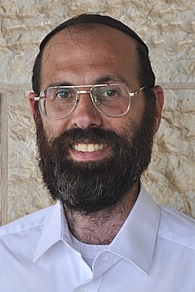מכת חושך
הרב דני זוקרמן
שלח משה עבדו אהרן אשר בחר בו:ֲ שמו בם דברי אתותיו ומפתים בארץ חם: שלח חשך ויחשך ולא מרו את דבריו: (תהילים קה:כו-כח)
Tehilim perek 105 describes the process ofֲ שעבוד מצריםֲ and the eventualֲ גאולה. Remarkably, when the makkot are recounted, Choshech headlines the list. Why would Chosech come before Dam and Tzfardea and upset the chronology of events?
After eight plagues strike almost every meaningful element of Egyptian livelihood and infrastructure, one would expect the ninth to be the most destructive of all, short of the mass casualties caused byֲ מכת בכורות. However, the period ofֲ חשךֲ seems to cause no destruction at all. In the absence of any obvious direct consequences, Rashi, quoting Chazal, seems forced to demonstrate two indirect consequences of the darkness. One, Jews were able to snoop around Egyptian homes. Two, Jews undeserving of geulah died without causing a chilul Hashem. Neither of these is an intrinsic product of the Choshech and Rashi’s mentioning of them seems to reinforce the point that the Choshech itself didn’t do much harm. But if so, why bring it at all?
ֲ ֲ ֲ ֲ ֲ ֲ ֲ ֲ ֲ ֲ ֲ ֲ In what sense is Choshech a plague? What is its effect and its significance?ֲ
ֲ ֲ ֲ ֲ ֲ ֲ ֲ ֲ ֲ ֲ ֲ ֲ Returning to our first question, Rav Hirsch explains that Choshech is first on the list because, though in a sense it was the most muted of the makkot, it is the most profound expression of the makkot’s stated purpose. Each makka targeted a different piece of Egyptian culture, economy or lifestyle, but until Choshech, no makka so directly denied Egyptian autonomy. Even without causing physical harm, confined to utter and all-consuming darkness, the Egyptians were unable to control themselves or their possessions or even to communicate. The basic elements of human identity were lost to them. While most makkot caused great damage to Egypt, the underlying goal of them all was for the Egyptians- and the Jews- to recognize Hashem’s sovereignty. Until Choshech the Egyptians could claim that, despite all their losses, they were competitors with Hakadosh Baruch Hu. Their total incarceration and incapacitation during Choshech deprived them of that claim.
We can now appreciate why Choshech caused no lasting damage. The goal of Choshech was solely to deprive Mitzrayim of its independence. Physical harm or destruction would have been beside the point.ֲ
ֲ ֲ ֲ ֲ ֲ ֲ ֲ ֲ ֲ ֲ ֲ ֲ Chazal hint to this idea in theֲ מדרש רבה. The above passuk has an ambiguous ending; who is the subject ofֲ "לא מרו את דבריו"? The midrash relatesֲ מרוֲ toֲ מרות, authority. It explains that Choshech was brought because the Egyptians did not accept theֲ מרותֲ of Hashem. Theֲ מדה כנגד מדהֲ of Choshech was that Egypt, the technological, economic and military power of its time, was brought to its knees and forced to recognize Hashem’s absolute authority over their very selves.
ֲ ֲ ֲ ֲ ֲ ֲ ֲ ֲ ֲ ֲ ֲ ֲ As we read these parshiyot and encounter once again the great wonders ofֲ יציאת מצרים, the totality of Hakadosh Baruch Hu’s dominion should become even clearer to us and help to inform our thoughts and actions.ֲ
קוד השיעור: 9241
לשליחת שאלה או הארה בנוגע לשיעור:

.jpg)



 (1).jpg)

